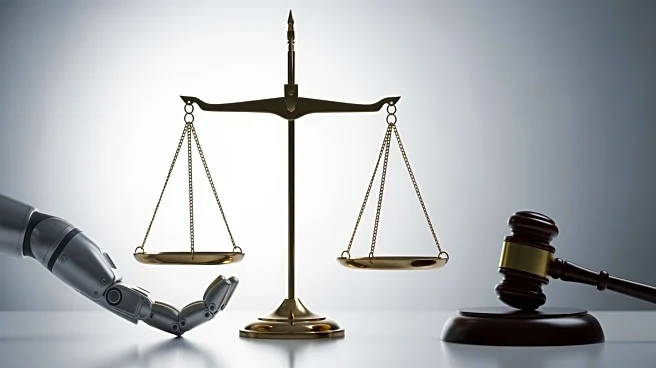What's Happening?
Joseph Daudu, a Senior Advocate of Nigeria and former president of the Nigerian Bar Association, has cautioned legal practitioners about the dangers of overreliance on Artificial Intelligence (AI) and societal stereotypes in their professional practice.
Speaking at a send-off ceremony for externs from the Nigerian Law School, Daudu emphasized the importance of maintaining human judgment and discretion in legal practice. He highlighted the risks of using AI tools like ChatGPT, which can produce inaccurate legal documents, as demonstrated by an incident where a lawyer submitted a brief filled with hypothetical precedents. Daudu stressed that while AI and other technological tools can assist lawyers, they cannot replace the human element essential for justice and legal practice.
Why It's Important?
The warning from Joseph Daudu underscores a critical debate in the legal profession about the role of AI in law. As AI technology becomes more prevalent, there is a growing concern about its impact on professional judgment and the potential for errors in legal proceedings. This issue is significant for the legal industry, which relies heavily on precedent and nuanced interpretation of the law. Overreliance on AI could lead to a devaluation of human expertise and potentially compromise the quality of legal services. The broader implication is a call for a balanced approach where technology aids but does not replace human decision-making, ensuring that justice remains a human-centered endeavor.
What's Next?
As AI continues to evolve, the legal profession may need to establish guidelines and best practices for integrating technology into legal work. This could involve training programs for lawyers to effectively use AI tools while maintaining critical oversight. Legal institutions might also consider developing ethical standards to govern the use of AI, ensuring that it complements rather than undermines human expertise. The dialogue initiated by Daudu could lead to broader discussions within the legal community about the future of legal practice in an increasingly digital world.
Beyond the Headlines
The conversation about AI in law also touches on ethical considerations, such as the potential for bias in AI algorithms and the need for transparency in AI-driven legal processes. As AI systems are trained on historical data, there is a risk of perpetuating existing biases, which could affect the fairness of legal outcomes. This highlights the importance of developing AI systems that are not only technically proficient but also ethically sound, ensuring that they enhance rather than hinder justice.















